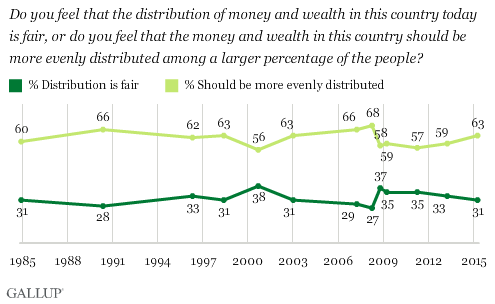Building slightly on what
@panamaican and
@JudoThrowFiasco have said already, there's really only so much you can do to pull yourself up by your bootstraps. Reason being that the return on labour is much smaller than the return on capital. That means that the easiest way to get rich is...well...to already be rich. A rich guy could speculatively put, say, 10 million into a promising company, and double his money. Meanwhile if you were born in the projects, you could study your ass off, get a degree, and a profession, and end up making less than that in your entire lifetime, most of which will be consumed by your living expenses.
A rich man's hunch can mean more than an entire lifetime of good decisions.






